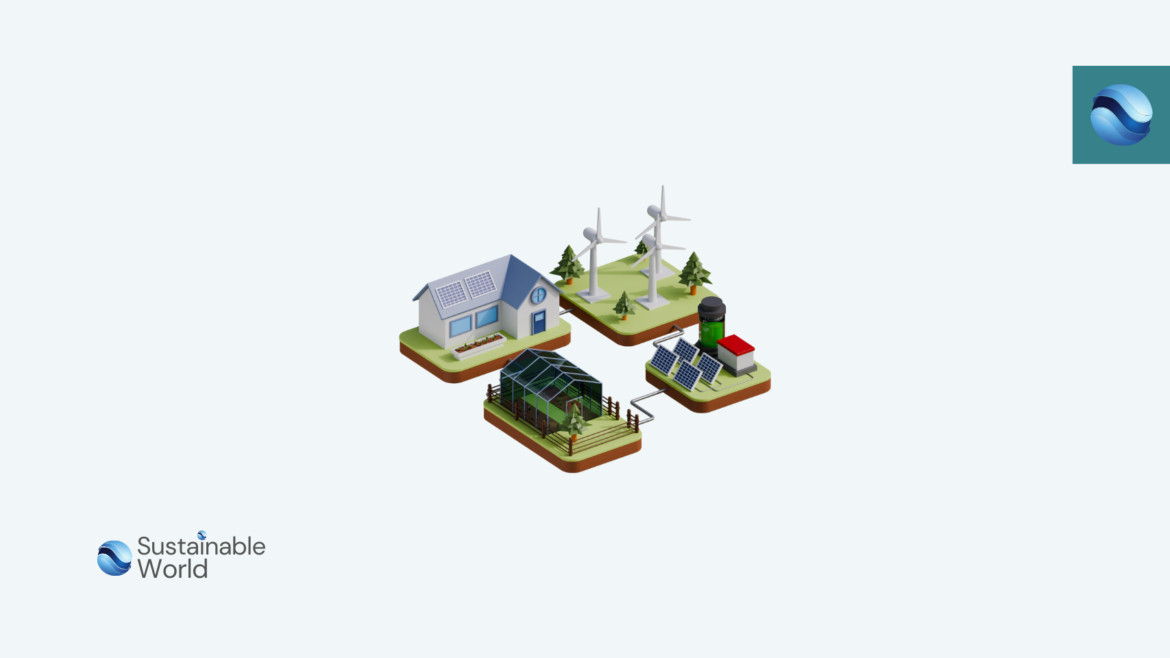Renewable Energy at Home: Solar Panels, Wind Turbines, and Beyond
Adopting renewable energy at home is a significant step toward sustainability and energy independence. Homeowners have various options, including solar panels and wind turbines, each offering unique benefits and challenges.
Understanding these options and the available incentives can help you make informed decisions about integrating renewable energy into your household.
Solar Panels
Solar photovoltaic (PV) systems convert sunlight into electricity, providing a reliable and low-maintenance energy source.
They can reduce or even eliminate your electricity bills and increase your home’s value. However, the initial installation cost can be high, and their efficiency depends on your location and roof orientation. Federal tax credits, such as the Residential Clean Energy Credit, offer a 30% tax reduction on the cost of a new solar energy system until 2033, making solar panels more affordable.
Wind Turbines
Residential wind turbines harness wind energy to generate electricity.
They are most effective in areas with consistent, strong winds and can significantly reduce energy costs. Challenges include zoning regulations, noise concerns, and higher upfront costs compared to solar panels. Incentives like the federal Renewable Electricity Production Tax Credit can help offset these expenses.
Geothermal Systems
Geothermal heat pumps utilize the earth’s stable underground temperature to heat and cool homes efficiently.
They offer substantial energy savings and have a smaller environmental footprint. The installation process is complex and can be costly, but federal tax credits are available to reduce the financial burden.
Hydropower
Micro-hydropower systems generate electricity from flowing water on your property.
They provide a consistent energy source but require access to a suitable water flow and can have environmental impacts on local ecosystems. Permitting can also be a challenge. Incentives may be available depending on your location.
Biomass Energy
Biomass systems burn organic materials like wood pellets to produce heat.
They can be a cost-effective heating solution, especially in rural areas. However, they require a steady supply of biomass and can produce emissions. Some states offer incentives for biomass heating systems.
Benefits of Home Renewable Energy Systems
- Cost Savings: Reducing reliance on traditional energy sources can lead to significant savings on utility bills over time.
- Environmental Impact: Renewable energy systems decrease greenhouse gas emissions, contributing to environmental preservation.
- Energy Independence: Generating your own energy increases self-sufficiency and reduces vulnerability to energy price fluctuations.
Challenges to Consider
- Initial Investment: High upfront costs can be a barrier, though incentives and financing options are available.
- Site Suitability: The effectiveness of renewable energy systems depends on location-specific factors like sunlight exposure and wind availability.
- Maintenance: Some systems require regular upkeep, which can add to long-term costs.
Available Incentives
The federal government offers various incentives to encourage the adoption of renewable energy systems:
- Residential Clean Energy Credit: Provides a 30% tax credit for the installation of solar, wind, geothermal, and biomass systems.
- State and Local Programs: Many states offer additional incentives, including rebates and tax credits. The Database of State Incentives for Renewables & Efficiency (DSIRE) is a comprehensive resource for finding programs in your area.
Before proceeding with installation, consult with a tax professional and research local regulations to maximize available benefits.
Explore Related Resources
- Atmospheric Water Generators eBook: Learn how to build devices that extract water from the air, complementing your renewable energy setup.
- Atmospheric Water Generators Audiobook: An audio guide to creating atmospheric water generators.
Additionally, consider these products to enhance your renewable energy system:
- 100 Watt 12 Volt Solar Panel: A high-efficiency monocrystalline solar panel suitable for residential use.
- Off-Grid Generator : A solar and wind-powered generator for home backup power.
- 400W Wind Turbine Generator: A 400W wind turbine suitable for augmenting home energy systems.
Integrating renewable energy into your home is a meaningful investment in a sustainable future. By understanding your options, assessing your property’s suitability, and leveraging available incentives, you can make informed decisions that benefit both your household and the environment.
Note: Always consult with professionals and local authorities to ensure compliance with regulations and to optimize the performance of your renewable energy systems.


